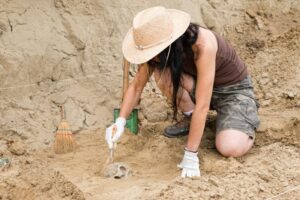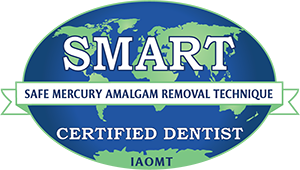Tales Told by Teeth: What Does Dental Archaeology Tell Us?
November 19, 2025

Did you know that teeth are a treasure trove of information for archaeologists? Indeed, hundreds or thousands of years from now, researchers might come across the remains of humans from the twenty-first century and learn much about the way we lived. What are some of the specific details they might discover? Continue reading this blog post to find out.
Dietary Trends
Teeth offer a remarkable window into the diets of past populations. The wear patterns, cavities, and chemical composition of dental enamel and dentin can reveal the types of food consumed by individuals and communities. For example, microscopic analysis can distinguish between people who ate mostly plants and those who depended on meat or processed grains. Enamel isotopes can also indicate the consumption of maize, wheat, or other staple crops, providing insight into agriculture and food preparation techniques.
Researchers often examine the presence of dental caries, or cavities, to infer the amount of sugar or starch in a population’s diet. Populations with high rates of cavities generally consumed more refined carbohydrates, while those with fewer cavities tended to rely on tougher, fiber-rich foods. In some cases, changes in dental health over time can highlight major shifts in diet, such as the introduction of new crops or food technologies after contact with other cultures.
Migration and Travel Patterns
Teeth can also illuminate the migration and travel patterns of individuals and groups. The minerals incorporated into tooth enamel during childhood reflect the geological characteristics of the region where a person grew up. By analyzing isotopic ratios such as strontium and oxygen, archaeologists can determine whether a person lived in the same region throughout their life or moved to a new area.
Comparing these isotopic signatures to local environmental databases allows researchers to reconstruct journeys taken by ancient people. Teeth have helped confirm the presence of mobile communities and trade networks that spanned vast distances. This kind of evidence makes it possible to trace the movement of individuals across continents, offering valuable perspectives on cultural exchange and population dynamics.
Antibodies
Teeth are also unique records of the immune responses of past populations. In fact, in a 2023 study, scientists found live antibodies in the teeth of human remains that were 800 years old! The antibodies still actively responded to the virus that they originally fought.
By analyzing ancient antibodies, scientists can identify outbreaks of illnesses such as tuberculosis or plague. This information is crucial for understanding how diseases shaped societies, influenced migration, and affected population growth. Dental archaeology thus provides a direct link to the health challenges faced by humans throughout history.
Dental archaeology is fascinating! As you live your life, your teeth are writing a history of your activities and experiences that may be preserved for hundreds of years.
Meet the Practice
Dr. Preetha Thomas is a highly skilled holistic dentist who is proud to serve the Southlake, TX, area. She is enthusiastic about both oral and overall health, and she enjoys sharing relevant information with her patients. If you would like to learn how she and our team may be able to serve you, contact Enclave Dental at 817-912-1218.
No Comments
No comments yet.
RSS feed for comments on this post.
Sorry, the comment form is closed at this time.




